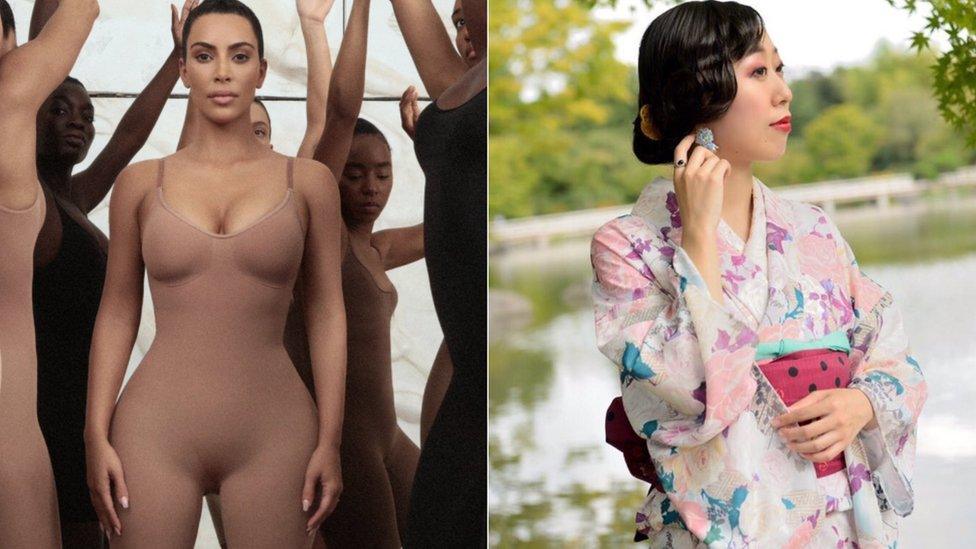Kim Kardashian West defends herself over Kimono row
- Published

Kardashian-West insists the new line represents "inclusivity and diversity"
Kim Kardashian West has denied accusations of cultural appropriation regarding her new fashion line.
Many Japanese people on social media said the trademarked brand, Kimono Intimates - a play on her name - disrespected traditional clothing.
The reality-star-turned-designer, however, told the New York Times, external, it was a "nod to the beauty and detail" that goes into a kimono.
The loose long-sleeved robe dates back to 16th Century Japan.
She added: "I understand and have deep respect for the significance of the kimono in Japanese culture.
"My solutionwear brand is built with inclusivity and diversity at its core and I'm incredibly proud of what's to come."
The 38-year-old said she had no plans to change the name of the garment. Earlier this week she said the label "celebrates and enhances the shape and curves of women".
Allow X content?
This article contains content provided by X. We ask for your permission before anything is loaded, as they may be using cookies and other technologies. You may want to read X’s cookie policy, external and privacy policy, external before accepting. To view this content choose ‘accept and continue’.
According to the Victoria & Albert museum, "the Kimono became the principal item of dress for all classes and sexes in Japan from the 16th c. and is still a symbol of Japanese culture."
"We wear kimonos to celebrate health, growth of children, engagements, marriages, graduations, at funerals," one Japanese woman, Yuka Ohishi, told the BBC. "It's celebratory wear and passed on in families through the generations.
"[This] shapewear doesn't even resemble a kimono - she just chose a word that has Kim in it - there's no respect to what the garment actually means in our culture."

Follow us on Facebook, external, on Twitter @BBCNewsEnts, external, or on Instagram at bbcnewsents, external. If you have a story suggestion email entertainment.news@bbc.co.uk, external.
- Published27 June 2019
